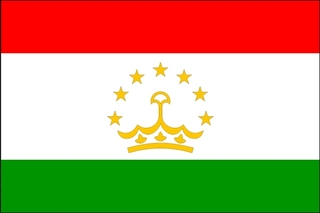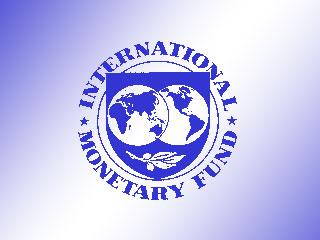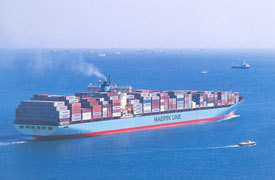Sweden Thrives on Exports One Year After Voters Reject the Euro
Published:
16 September 2004 y., Thursday
A year after Swedish Prime Minister Goeran Persson told voters his country needed the euro to compete in world markets, the Swedish economy has done a good job of proving him wrong.
The National Institute of Economic Research in Stockholm last month raised its economic growth forecast to 3.5 percent this year and 3 percent in 2005. A global expansion has boosted demand for Swedish exports while worker productivity has increased faster than in the 12 countries sharing the euro, which 56 percent of Swedish voters rejected on Sept. 14, 2003.
Swedish and international companies are betting on Sweden. Last month, for example, Atlet AB said it would close its forklift plant in Oberhausen, Germany, and move about 30 jobs to its factory in Moelnlycke, Sweden. Second-quarter foreign direct investment in Sweden jumped to a net 19.9 billion kronor ($2.7 billion), after a year-earlier outflow of 31.4 billion kronor.
The European Central Bank expects the economy of the euro region to expand about 1.9 percent this year and 2.3 percent in 2005. By one study, Sweden ranks second in the world in productivity.
Sweden, a nation of 9 million people that joined the European Union in 1994, accounts for 2 percent of the bloc's population and 2.7 percent of economic production. Its economy has grown faster than that of the euro region for eight of the past 10 years.
Šaltinis:
Bloomberg
Copying, publishing, announcing any information from the News.lt portal without written permission of News.lt editorial office is prohibited.
The most popular articles
 A record 131 economies around the globe reformed business regulation in 2008/09, according to the IFC–World Bank Doing Business 2010 report.
more »
A record 131 economies around the globe reformed business regulation in 2008/09, according to the IFC–World Bank Doing Business 2010 report.
more »
 The World Bank’s Board of Directors today approved a US$5 million grant to improve the quality of electricity services in Haiti and strengthen the financial and operational performance of Electricité d’Haïti, the public electricity utility.
more »
The World Bank’s Board of Directors today approved a US$5 million grant to improve the quality of electricity services in Haiti and strengthen the financial and operational performance of Electricité d’Haïti, the public electricity utility.
more »
 Firuza Ziyoeva, a 42-year old mother of five, lacks any sustainable income for her family – her husband is unable to work due to disabilities and their children are all young.
more »
Firuza Ziyoeva, a 42-year old mother of five, lacks any sustainable income for her family – her husband is unable to work due to disabilities and their children are all young.
more »
 The Managing Director of the International Monetary Fund (IMF), Mr. Dominique Strauss-Kahn, made the following statement today regarding Singapore’s commitment to increase fourfold its contribution to the Fund’s New Arrangements to Borrow (NAB) by US$1.5 billion, to a total of US$2 billion.
more »
The Managing Director of the International Monetary Fund (IMF), Mr. Dominique Strauss-Kahn, made the following statement today regarding Singapore’s commitment to increase fourfold its contribution to the Fund’s New Arrangements to Borrow (NAB) by US$1.5 billion, to a total of US$2 billion.
more »
 Statistics Lithuania reports that, based on non-final data obtained from customs declarations and Intrastat reporting data, exports in I half-year 2009 made LTL 19 billion, while imports – LTL 21.2 billion.
more »
Statistics Lithuania reports that, based on non-final data obtained from customs declarations and Intrastat reporting data, exports in I half-year 2009 made LTL 19 billion, while imports – LTL 21.2 billion.
more »
 Since 7 September 2009 AB Bank SNORAS for residents and economy subjects begins to distribute a new savings product - certificates of deposits.
more »
Since 7 September 2009 AB Bank SNORAS for residents and economy subjects begins to distribute a new savings product - certificates of deposits.
more »
 “We are 53 diverse countries differently affected by the crisis, 1 billion people that cannot be ignored”. That was the stark message to Members of Parliament's Development Committee from Donald Kaberuka, the head of Africa's Development Bank at a hearing on 3 September in Brussels.
more »
“We are 53 diverse countries differently affected by the crisis, 1 billion people that cannot be ignored”. That was the stark message to Members of Parliament's Development Committee from Donald Kaberuka, the head of Africa's Development Bank at a hearing on 3 September in Brussels.
more »
 The European Investment Bank has granted a EUR 450 million loan to AENA (Aeropuertos Españoles y Navegación Aérea) for upgrading and expanding Spain’s air traffic control facilities in order to optimise their overall efficiency and ensure that they comply with international regulations.
more »
The European Investment Bank has granted a EUR 450 million loan to AENA (Aeropuertos Españoles y Navegación Aérea) for upgrading and expanding Spain’s air traffic control facilities in order to optimise their overall efficiency and ensure that they comply with international regulations.
more »
 Statistics Lithuania informs that in August 2009, against July, prices for total industrial production sold increased by 0.9 per cent.
more »
Statistics Lithuania informs that in August 2009, against July, prices for total industrial production sold increased by 0.9 per cent.
more »
 Despite signs the near two-year U.S. recession may be over - Americans are still finding it hard to get a job.
more »
Despite signs the near two-year U.S. recession may be over - Americans are still finding it hard to get a job.
more »